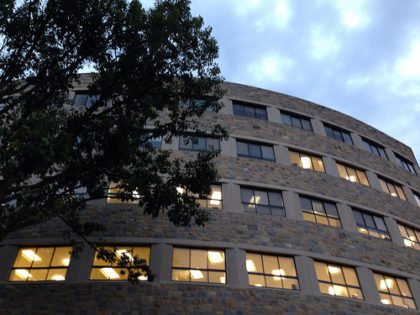In my previous posts, I discussed my exit from the academy and questions to better understand a pivot to a non-academic career. In this third post, I discuss practical strategies as you navigate new job application processes. When I started applying for non-academic jobs, I felt directionless and did not know how to start. Providentially, I stumbled upon the simple realization that I can leverage skills and expertise gained in graduate experience to navigate these new unknowns. By adopting familiar practices of … [Read more...] about Leaving Academia, Part 3
transitions
In Transition? Find an InterVarsity Campus Group
It's that time of year when many people are moving from campus to campus, starting new endeavors, and trying to find community in new places. If you're in transition now and looking for a Christian fellowship where you'll be moving, check out InterVarsity's handy Chapters page, where you can search the whole United States for InterVarsity Christian Fellowship/USA fellowships, including graduate and faculty chapters. If you're looking for a fellowship outside the United States, the International Fellowship of … [Read more...] about In Transition? Find an InterVarsity Campus Group
How Did You Do It? Faith and My Dissertation
Last fall, I defended my Ph.D. dissertation, and in May I attended my graduation at Virginia Tech's Blacksburg campus. My studies were challenging, especially since I was changing my discipline, from engineering to Science and Technology Studies (STS), which is built around a core of history, sociology, and philosophy. Fortunately, I had some advantages as a “non-traditional” student. First, I was accustomed to research and writing after a long, successful career as an engineer. Second, my STS interests ran deep. And … [Read more...] about How Did You Do It? Faith and My Dissertation
Leaving Academia, Part 2
In my last post, I shared about my unexpected and abrupt exit from an academic career. In this post, I discuss how my examination of two questions helped me pivot to life outside the academy and become thankful for my graduate experience. Now what? As it became clear that I would not have an academic job, I felt lost and overwhelmed. Having given no serious thought to a non-academic career, I wondered if my academic apprenticeship had any value in preparing me for life outside the academy. And I did not know … [Read more...] about Leaving Academia, Part 2
Leaving Academia, Part 1
Leaving academia is hard and difficult. In this new short series on “Leaving the Academy”, I hope my experiences will encourage you as you explore and wrestle with God's calling for your life as you transition to a perhaps unplanned non-academic career. Editor's note: For more of Josh Wu's work for ESN, see this link. For the better part of a decade, my life ambition was to become a professor. I was confident that hard work and a few providential breaks would land me a tenure-track political science professor … [Read more...] about Leaving Academia, Part 1




